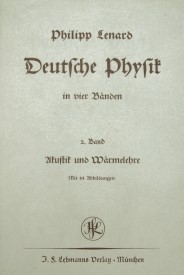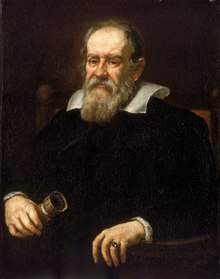Portal:History of science
The History of Science Portal
The history of science covers the development of science from ancient times to the present. It encompasses all three major branches of science: natural, social, and formal. Protoscience, early sciences, and natural philosophies such as alchemy and astrology during the Bronze Age, Iron Age, classical antiquity, and the Middle Ages declined during the early modern period after the establishment of formal disciplines of science in the Age of Enlightenment.
Science's earliest roots can be traced to Ancient Egypt and Mesopotamia around 3000 to 1200 BCE. These civilizations' contributions to mathematics, astronomy, and medicine influenced later Greek natural philosophy of classical antiquity, wherein formal attempts were made to provide explanations of events in the physical world based on natural causes. After the fall of the Western Roman Empire, knowledge of Greek conceptions of the world deteriorated in Latin-speaking Western Europe during the early centuries (400 to 1000 CE) of the Middle Ages, but continued to thrive in the Greek-speaking Byzantine Empire. Aided by translations of Greek texts, the Hellenistic worldview was preserved and absorbed into the Arabic-speaking Muslim world during the Islamic Golden Age. The recovery and assimilation of Greek works and Islamic inquiries into Western Europe from the 10th to 13th century revived the learning of natural philosophy in the West. Traditions of early science were also developed in ancient India and separately in ancient China, the Chinese model having influenced Vietnam, Korea and Japan before Western exploration. Among the Pre-Columbian peoples of Mesoamerica, the Zapotec civilization established their first known traditions of astronomy and mathematics for producing calendars, followed by other civilizations such as the Maya.
Natural philosophy was transformed during the Scientific Revolution in 16th- to 17th-century Europe, as new ideas and discoveries departed from previous Greek conceptions and traditions. The New Science that emerged was more mechanistic in its worldview, more integrated with mathematics, and more reliable and open as its knowledge was based on a newly defined scientific method. More "revolutions" in subsequent centuries soon followed. The chemical revolution of the 18th century, for instance, introduced new quantitative methods and measurements for chemistry. In the 19th century, new perspectives regarding the conservation of energy, age of Earth, and evolution came into focus. And in the 20th century, new discoveries in genetics and physics laid the foundations for new sub disciplines such as molecular biology and particle physics. Moreover, industrial and military concerns as well as the increasing complexity of new research endeavors ushered in the era of "big science," particularly after World War II. (Full article...)
Selected article -

Deutsche Physik (German: [ˈdɔʏtʃə fyˈziːk], lit. "German Physics") or Aryan Physics (German: Arische Physik) was a nationalist movement in the German physics community in the early 1930s which had the support of many eminent physicists in Germany. The term appears in the title of a four-volume physics textbook by Nobel laureate Philipp Lenard in the 1930s.
Deutsche Physik was opposed to the work of Albert Einstein and other modern theoretically based physics, which was disparagingly labeled "Jewish physics" (German: Jüdische Physik). (Full article...)
Selected image

An allegorical anatomy engraving from Andreas Vesalius's De humani corporis fabrica (1543), imparting a moral lesson on the consequences of evil and a physical lesson on the internal structure of the body.
Did you know
... that the Merton Thesis—an argument connecting Protestant pietism with the rise of experimental science—dates back to Robert K. Merton's 1938 doctoral dissertation, which launched the historical sociology of science?
...that a number of scientific disciplines, such as computer science and seismology, emerged because of military funding?
...that the principle of conservation of energy was formulated independently by at least 12 individuals between 1830 and 1850?
Selected Biography -
Galileo di Vincenzo Bonaiuti de' Galilei (15 February 1564 – 8 January 1642), commonly referred to as Galileo Galilei (/ˌɡælɪˈleɪoʊ ˌɡælɪˈleɪ/, US also /ˌɡælɪˈliːoʊ -/; Italian: [ɡaliˈlɛːo ɡaliˈlɛːi]) or mononymously as Galileo, was an Italian astronomer, physicist and engineer, sometimes described as a polymath. He was born in the city of Pisa, then part of the Duchy of Florence. Galileo has been called the father of observational astronomy, modern-era classical physics, the scientific method, and modern science.
Galileo studied speed and velocity, gravity and free fall, the principle of relativity, inertia, projectile motion and also worked in applied science and technology, describing the properties of the pendulum and "hydrostatic balances". He was one of the earliest Renaissance developers of the thermoscope and the inventor of various military compasses. With an improved telescope he built, he observed the stars of the Milky Way, the phases of Venus, the four largest satellites of Jupiter, Saturn's rings, lunar craters and sunspots. He also built an early microscope. (Full article...)
Selected anniversaries
- 1775 - Birth of André-Marie Ampère, French physicist (d. 1836)
- 1812 - Birth of Thomas Meik, Scottish engineer (d. 1896)
- 1910 - Birth of Joy Adamson, Austrian naturalist and writer (d. 1980)
- 1931 - Birth of David Lee, American physicist, Nobel Prize in Physics laureate
- 1948 - Birth of Natan Sharansky, Russian-born physicist and politician
- 2005 - Death of Miriam Louisa Rothschild, British zoologist, entomologist, and author (b. 1908)
Related portals
Topics
General images
Subcategories
Things you can do
Help out by participating in the History of Science Wikiproject (which also coordinates the histories of medicine, technology and philosophy of science) or join the discussion.
Associated Wikimedia
The following Wikimedia Foundation sister projects provide more on this subject:
-
Commons
Free media repository -
Wikibooks
Free textbooks and manuals -
Wikidata
Free knowledge base -
Wikinews
Free-content news -
Wikiquote
Collection of quotations -
Wikisource
Free-content library -
Wikiversity
Free learning tools -
Wiktionary
Dictionary and thesaurus









































































